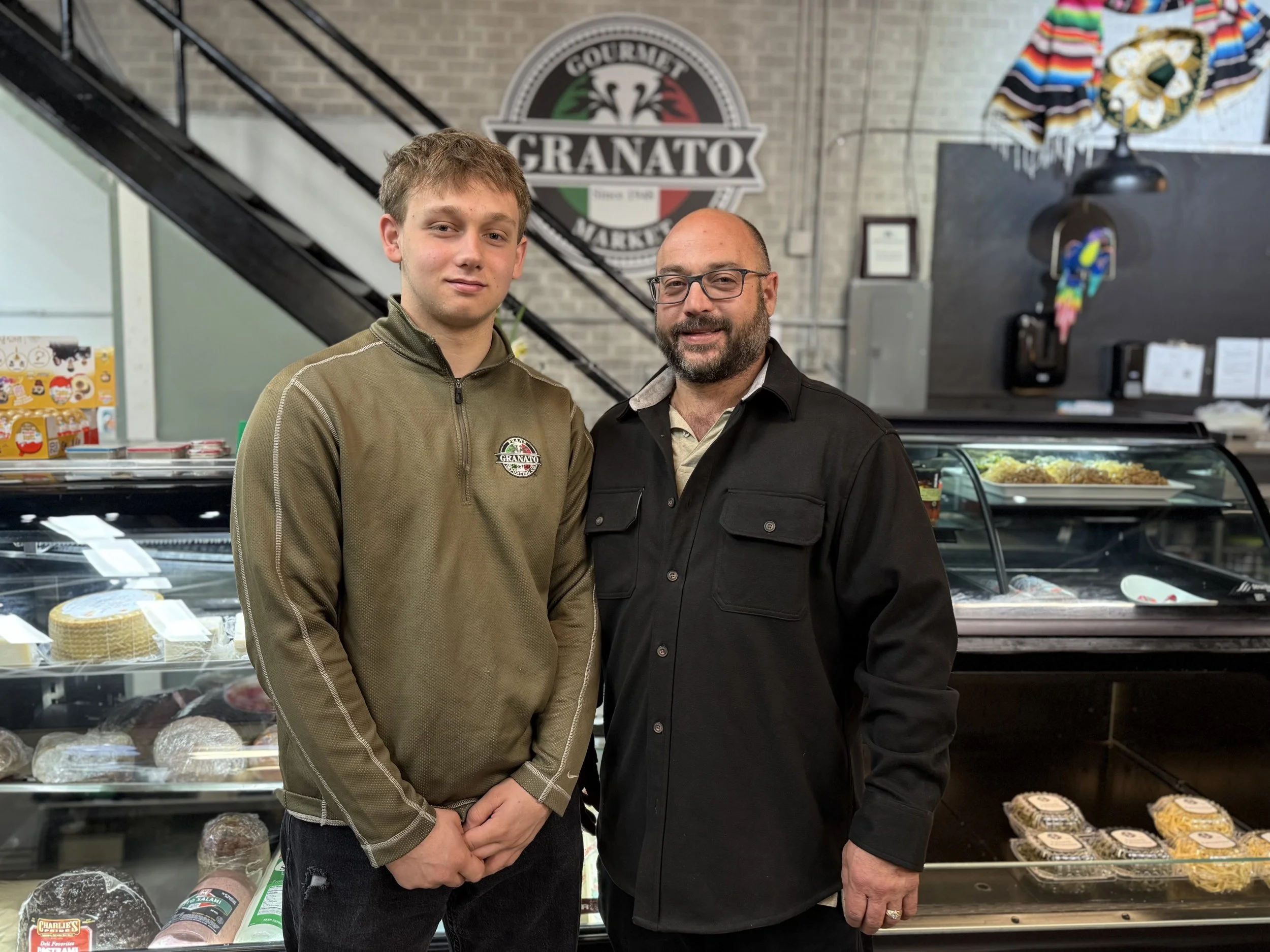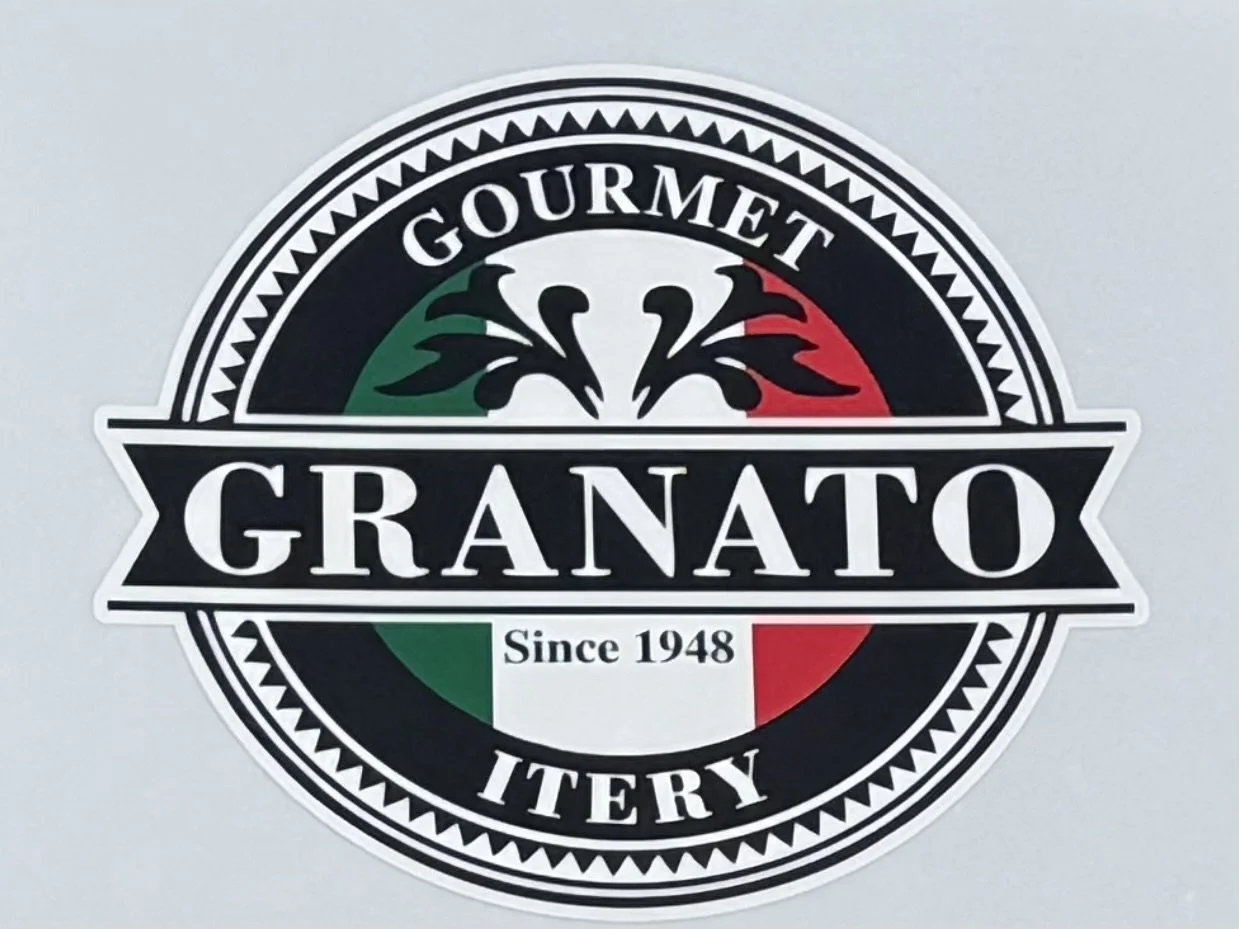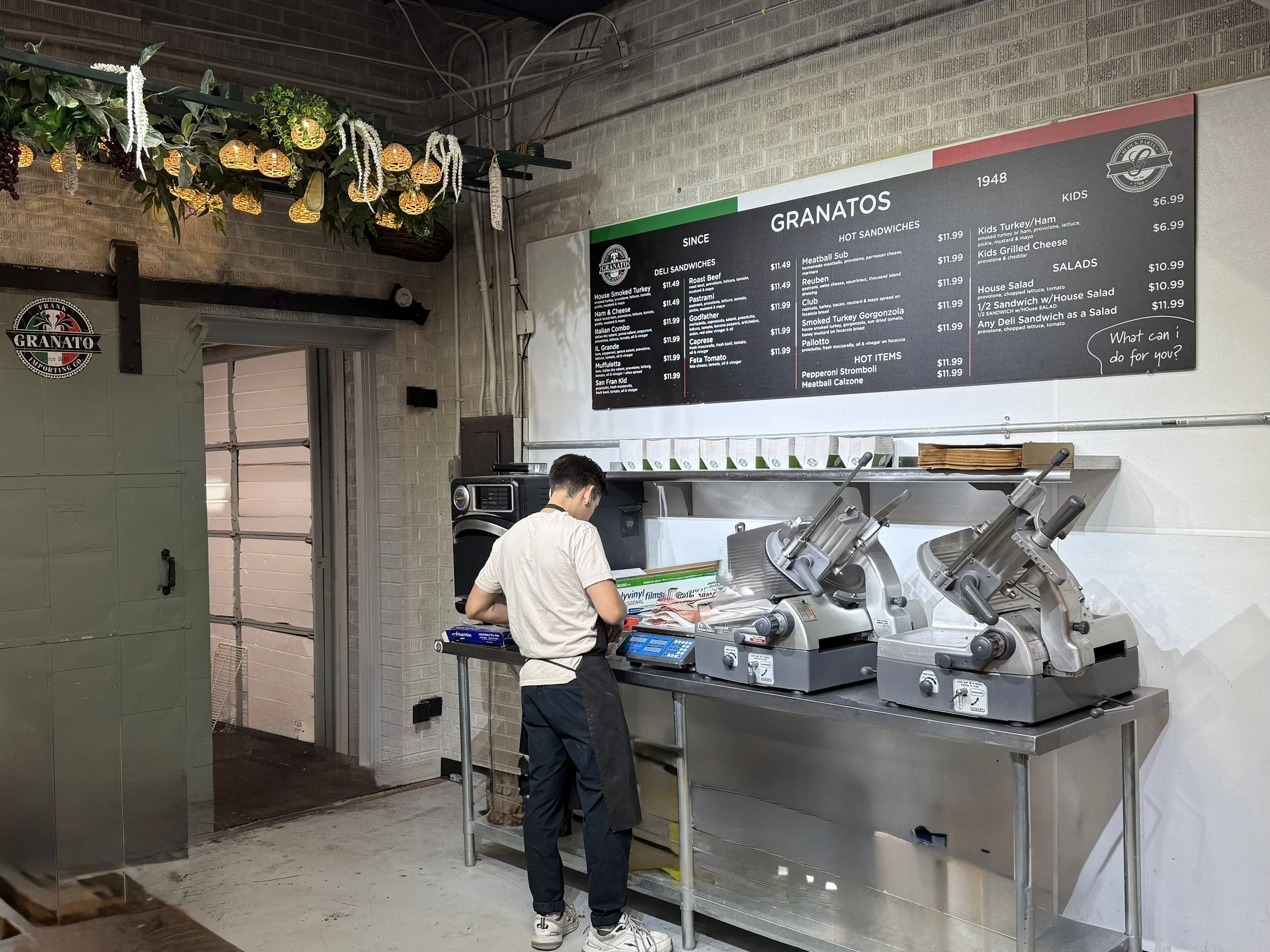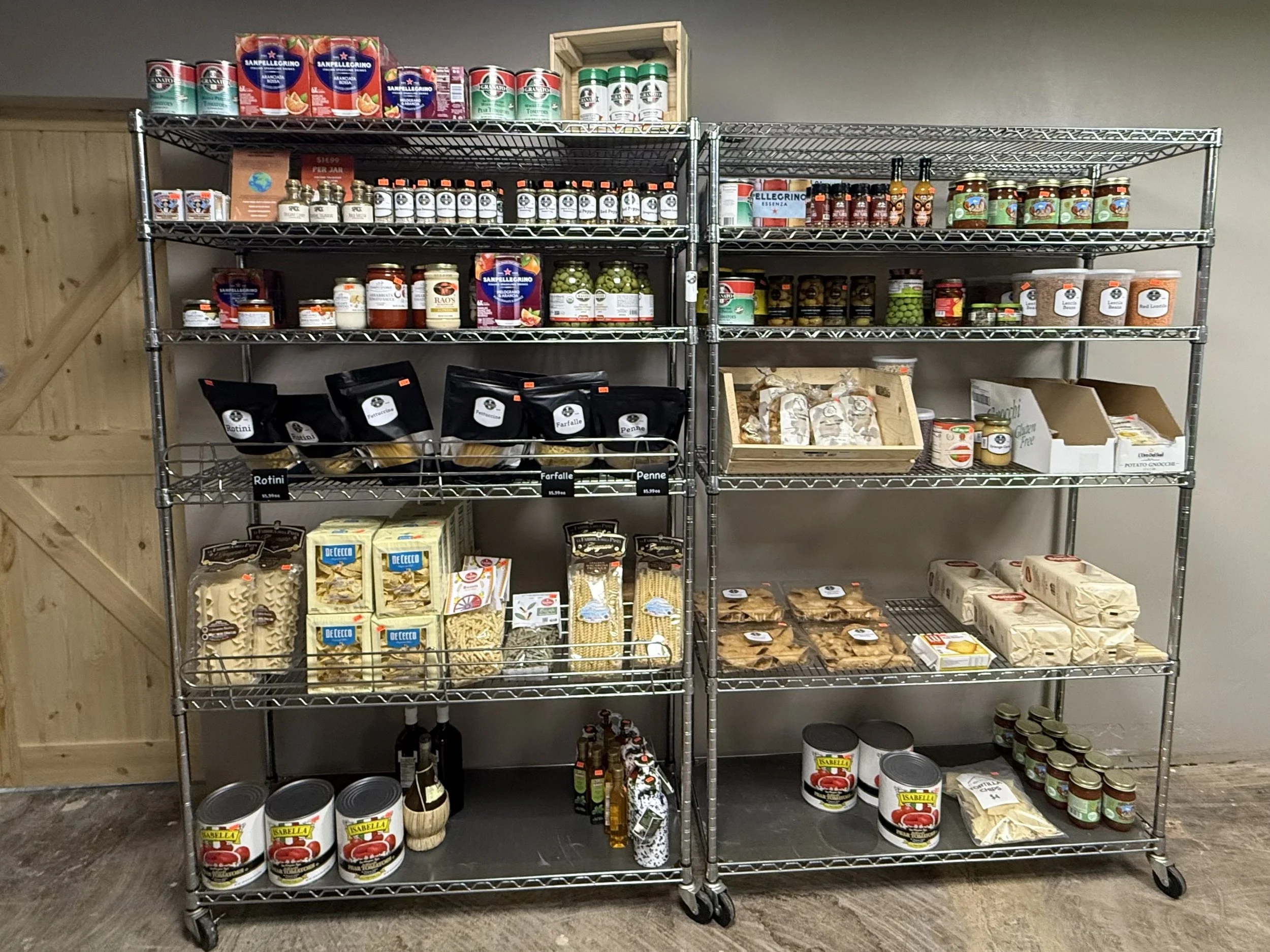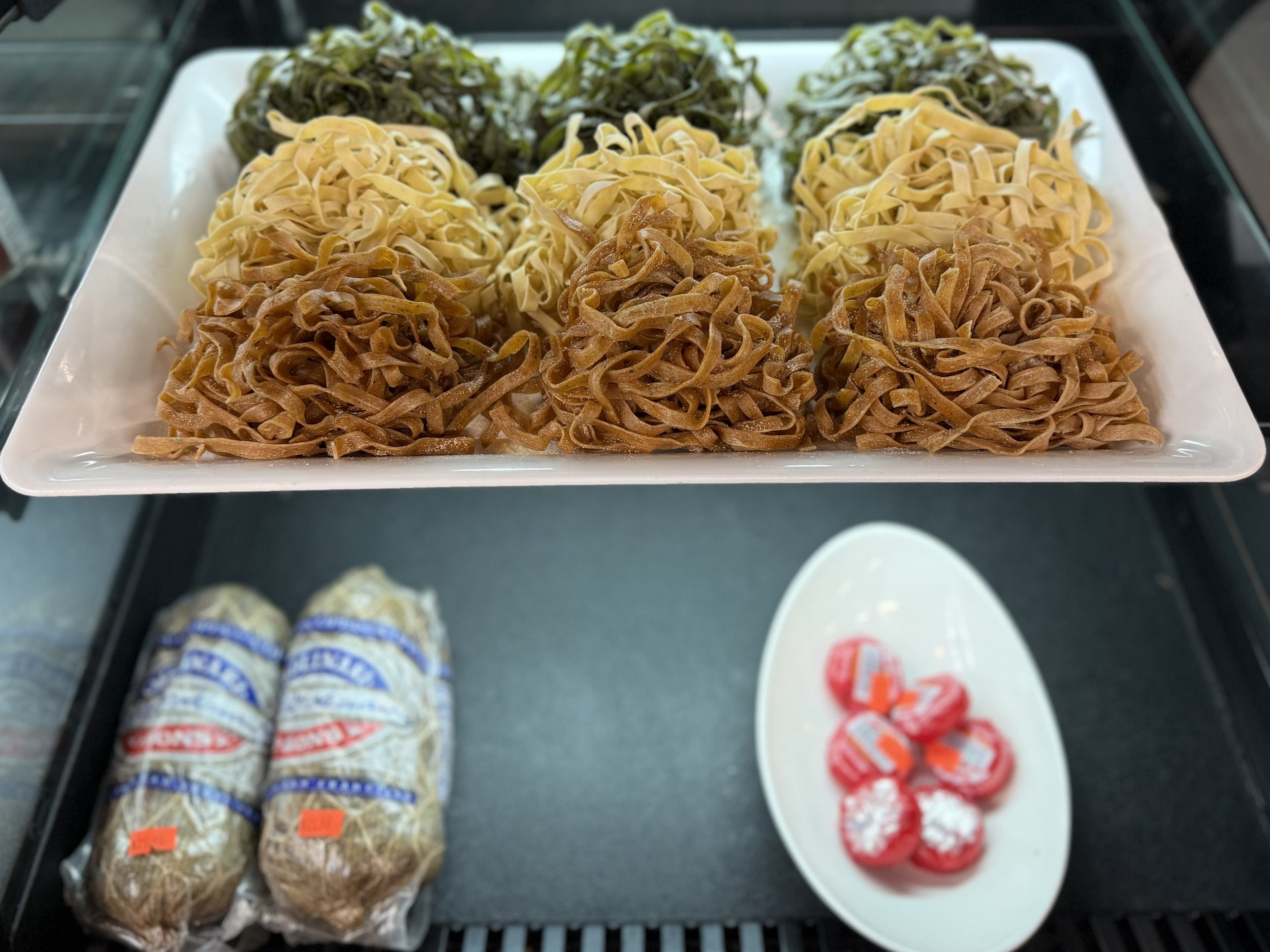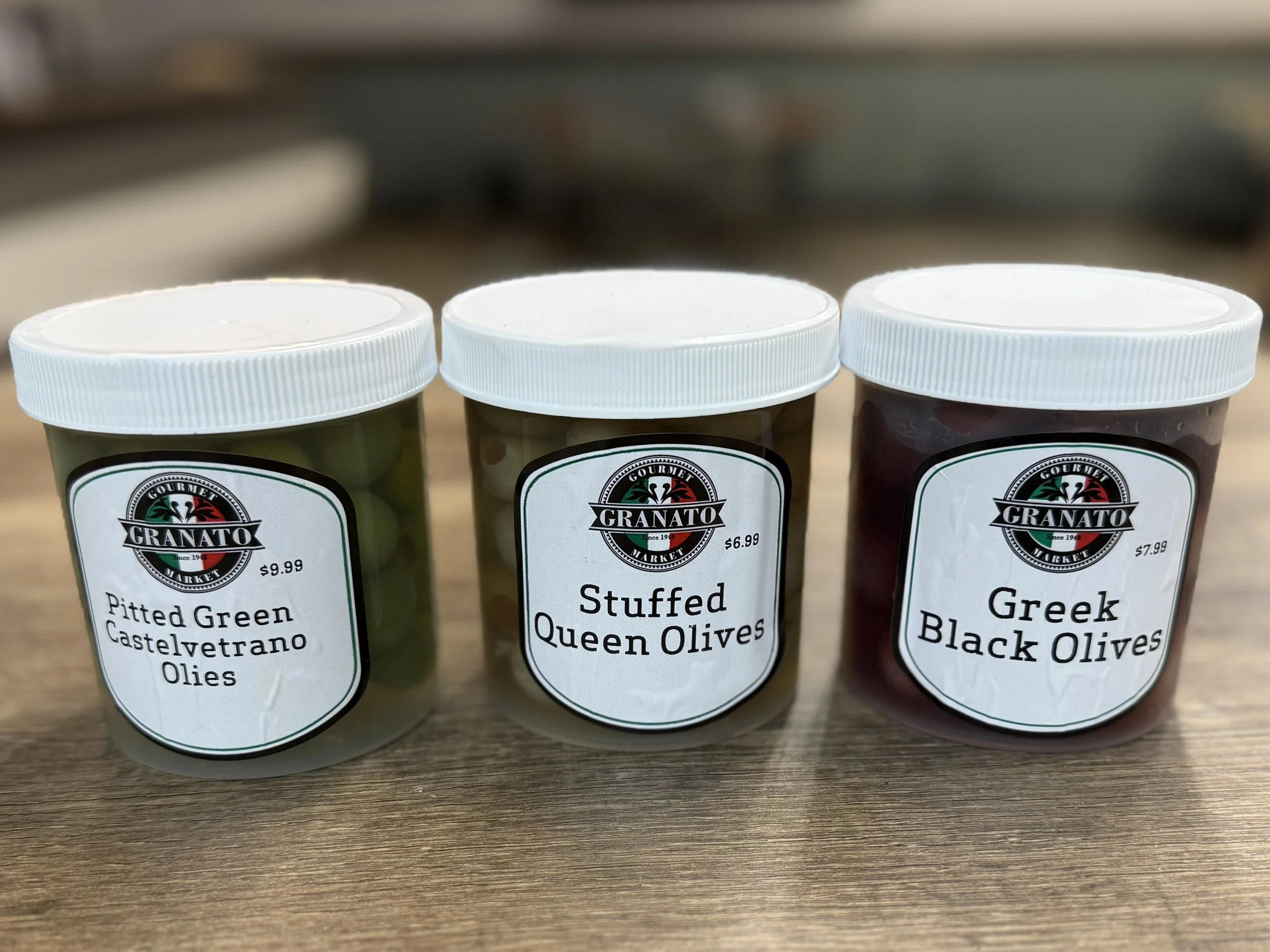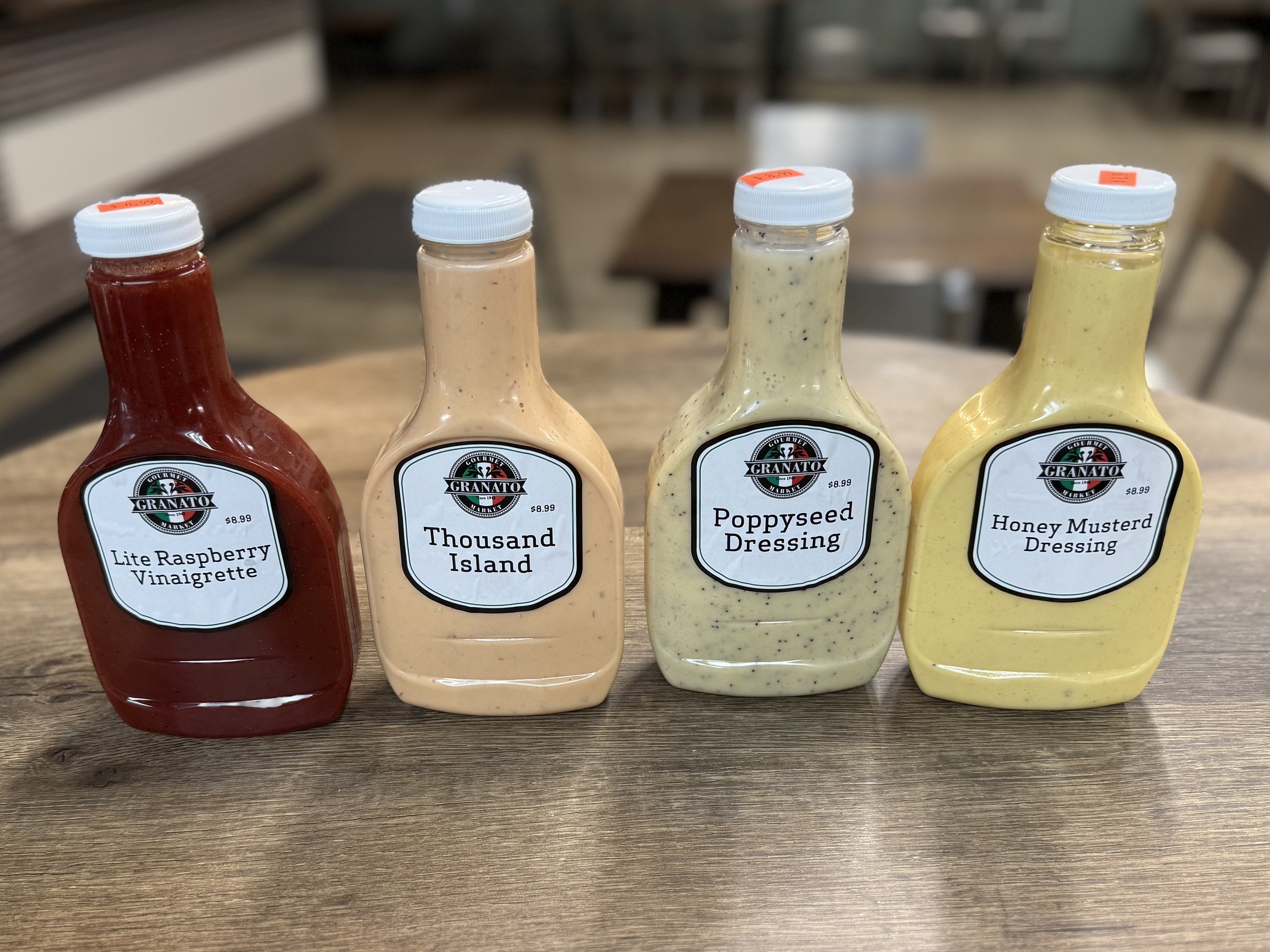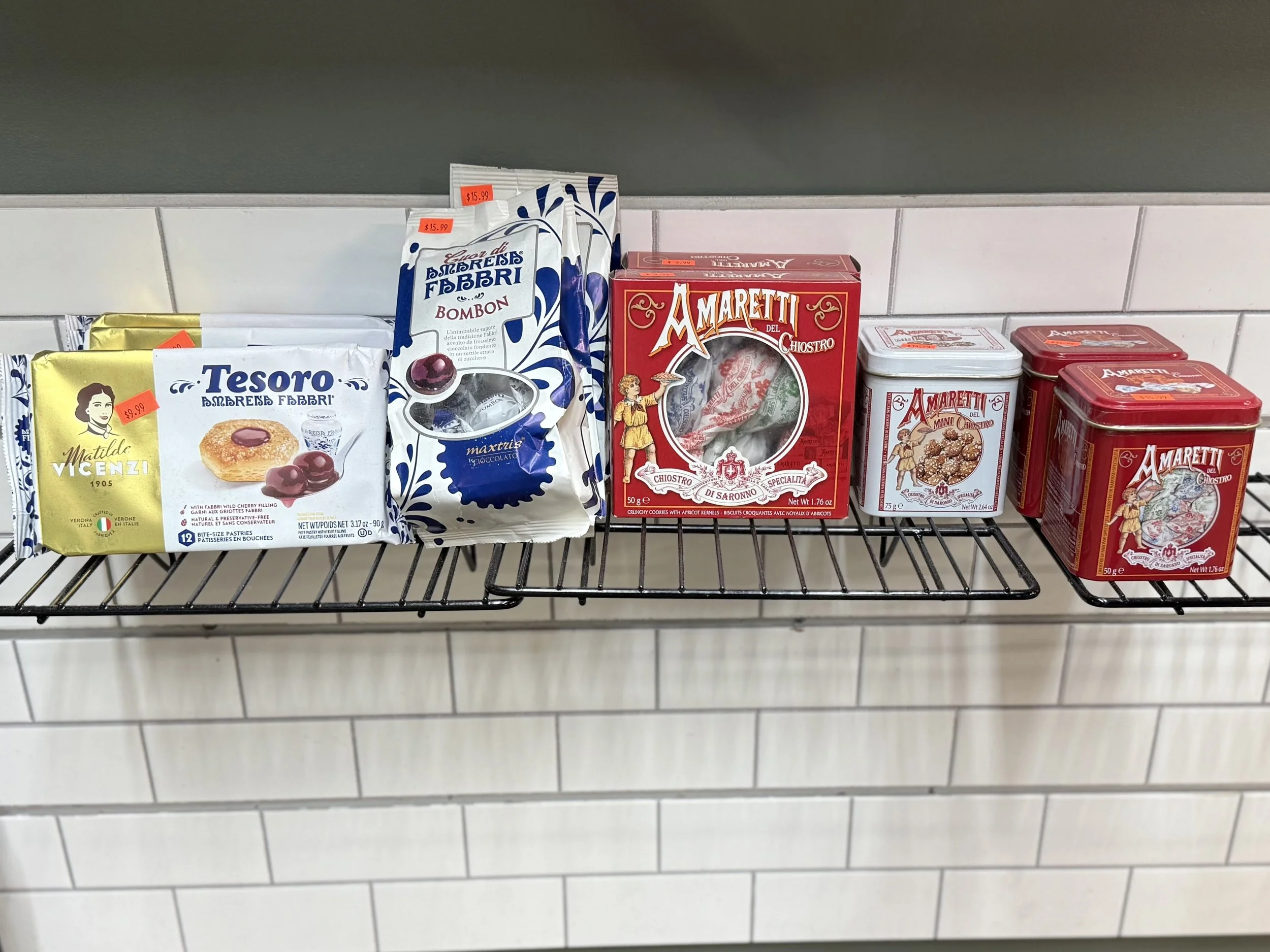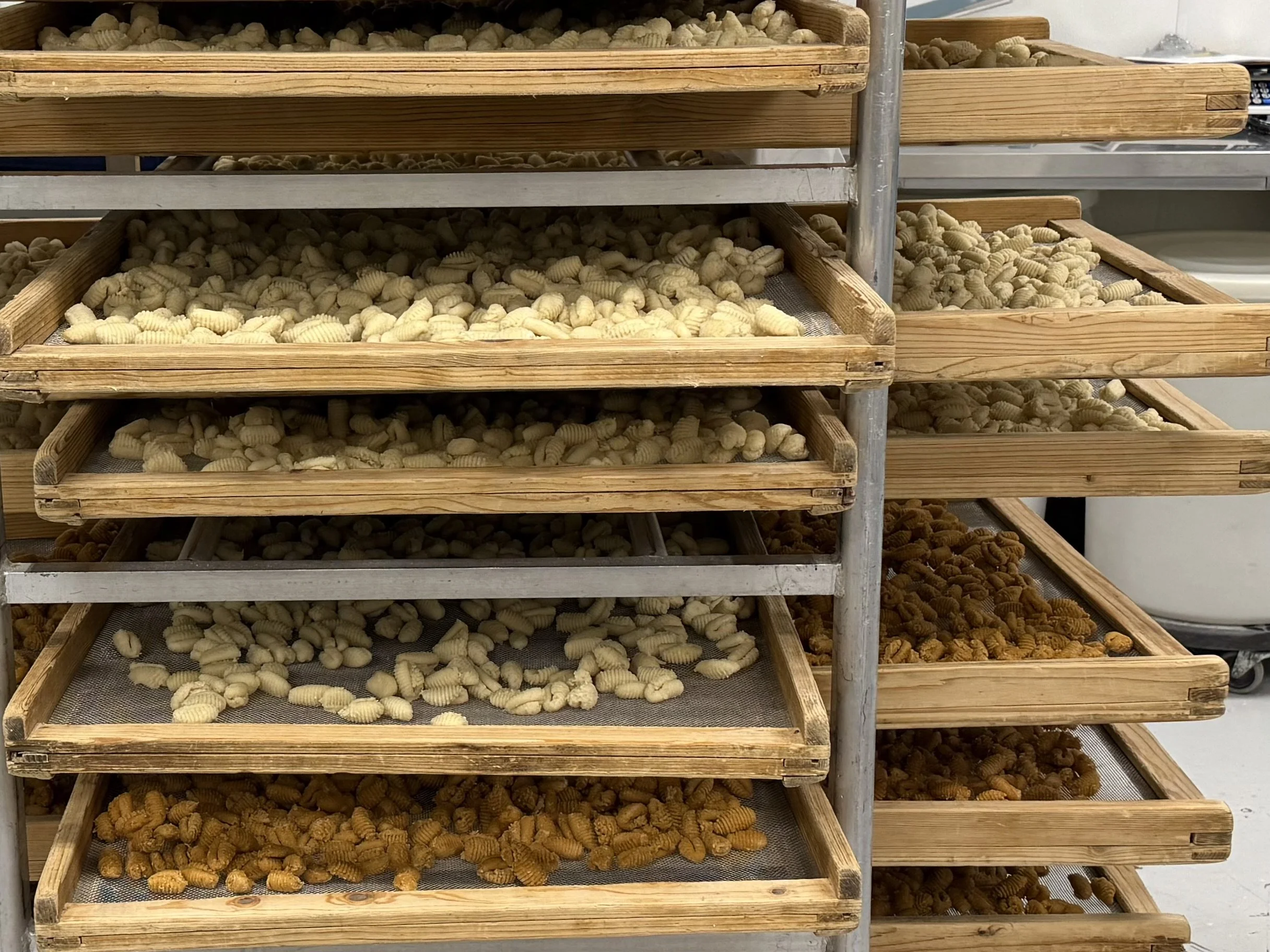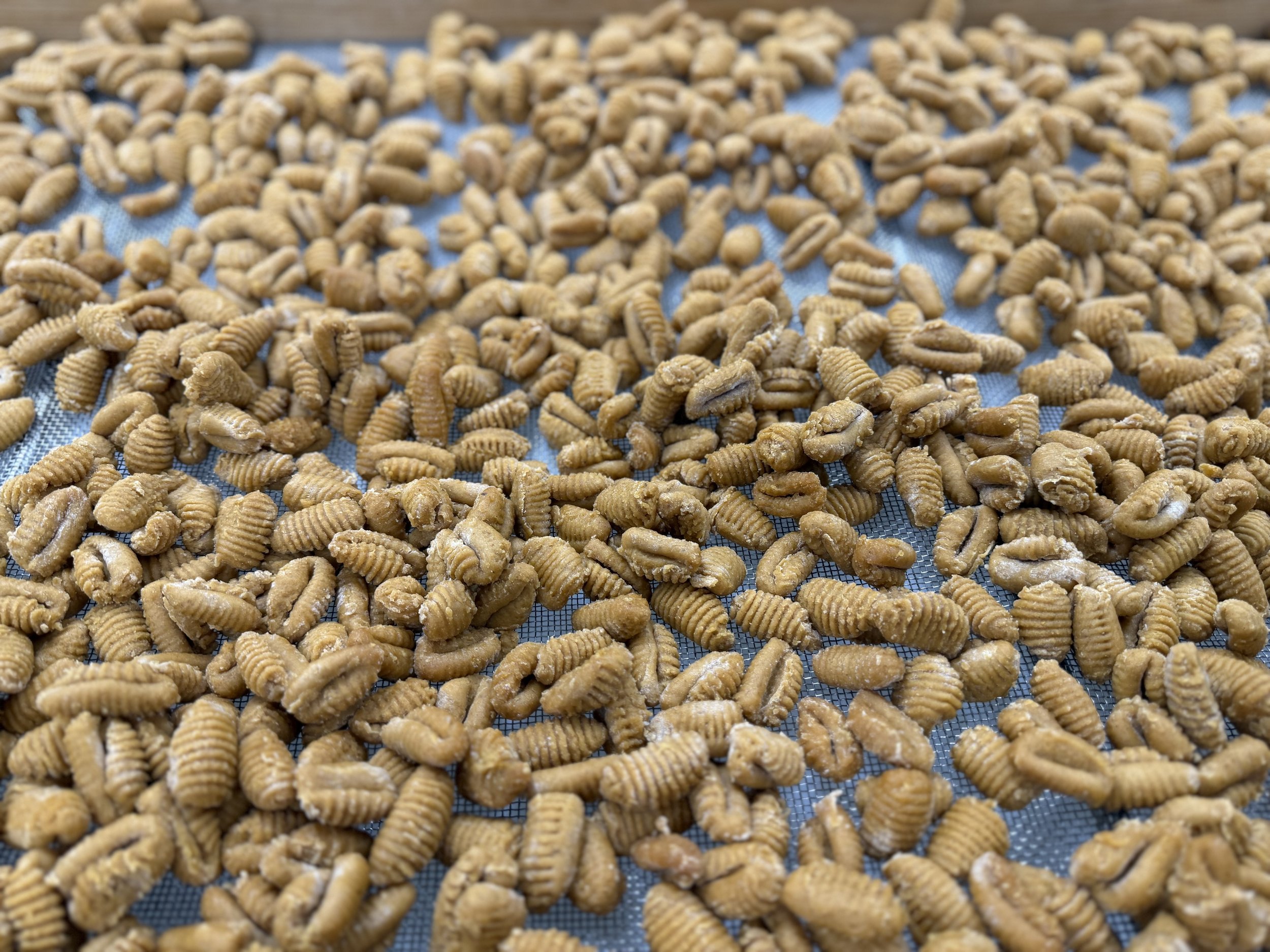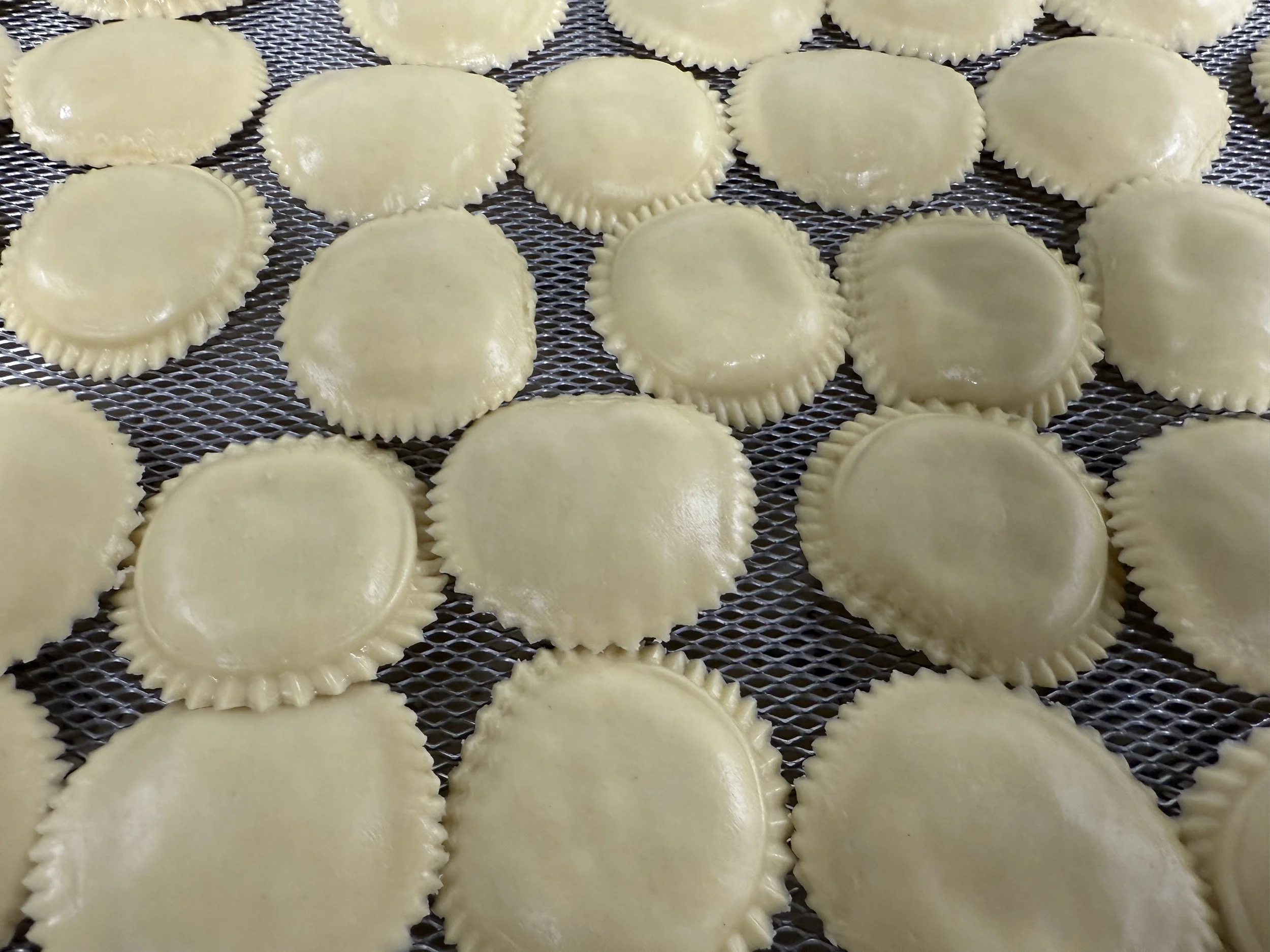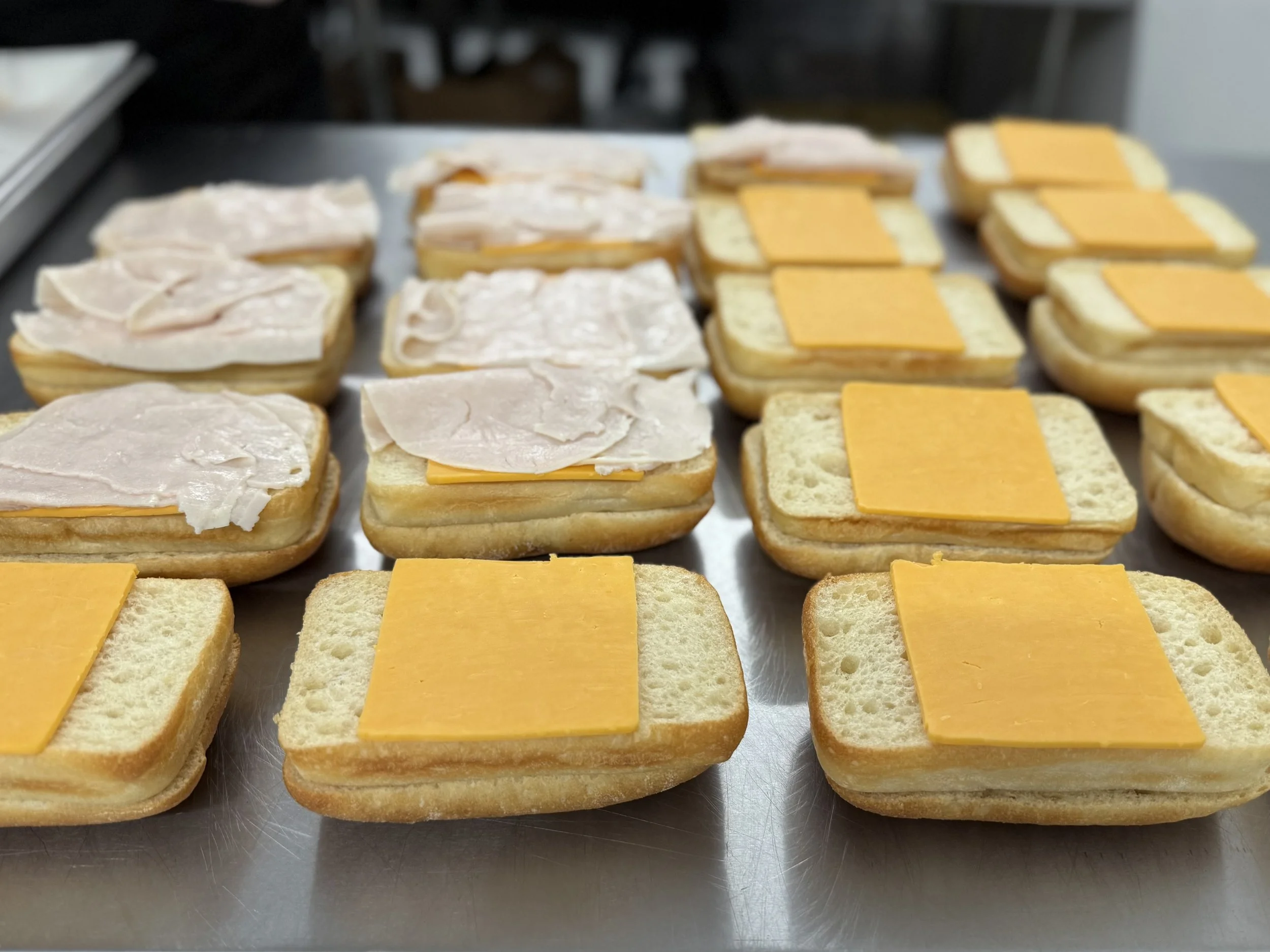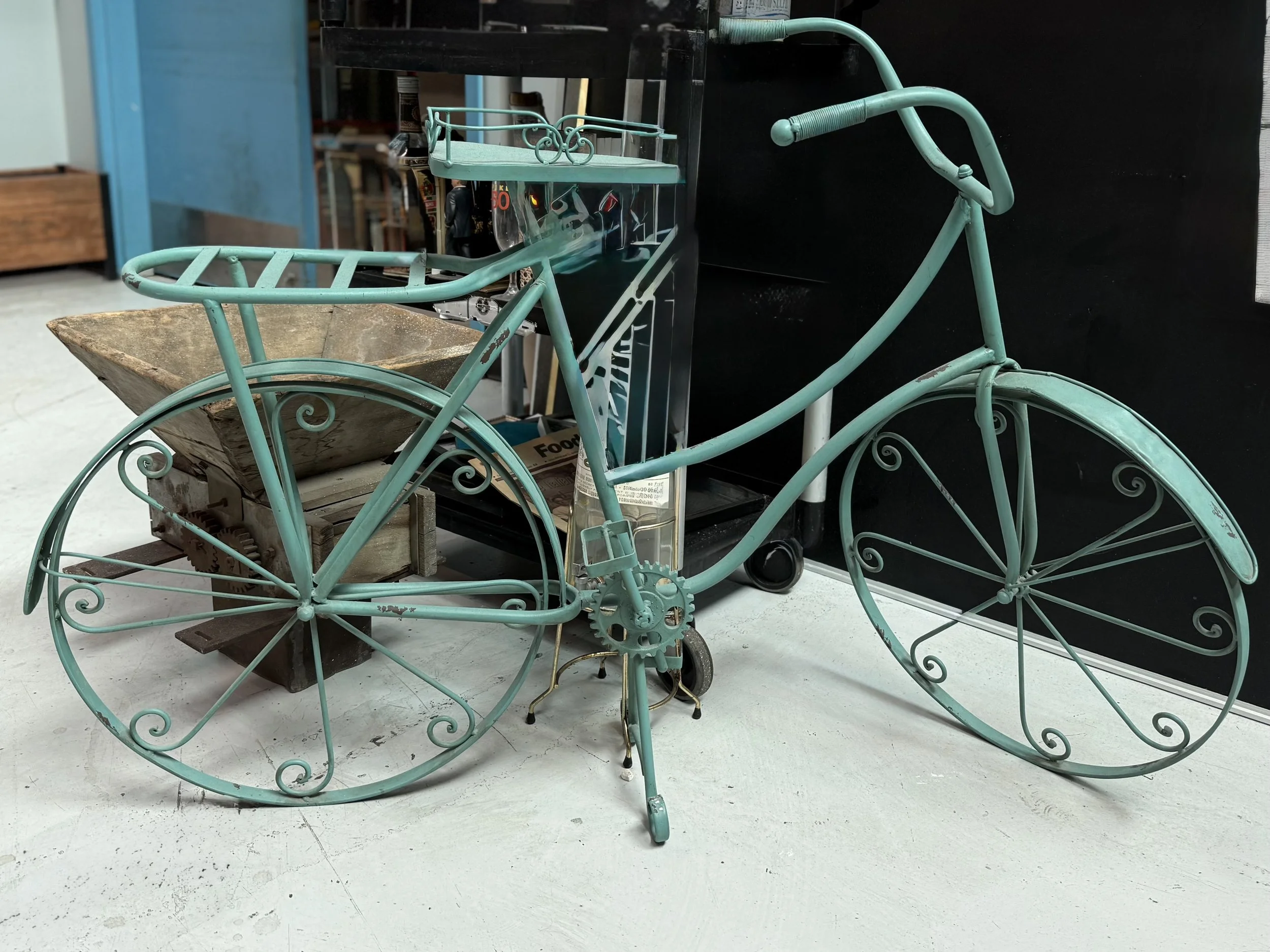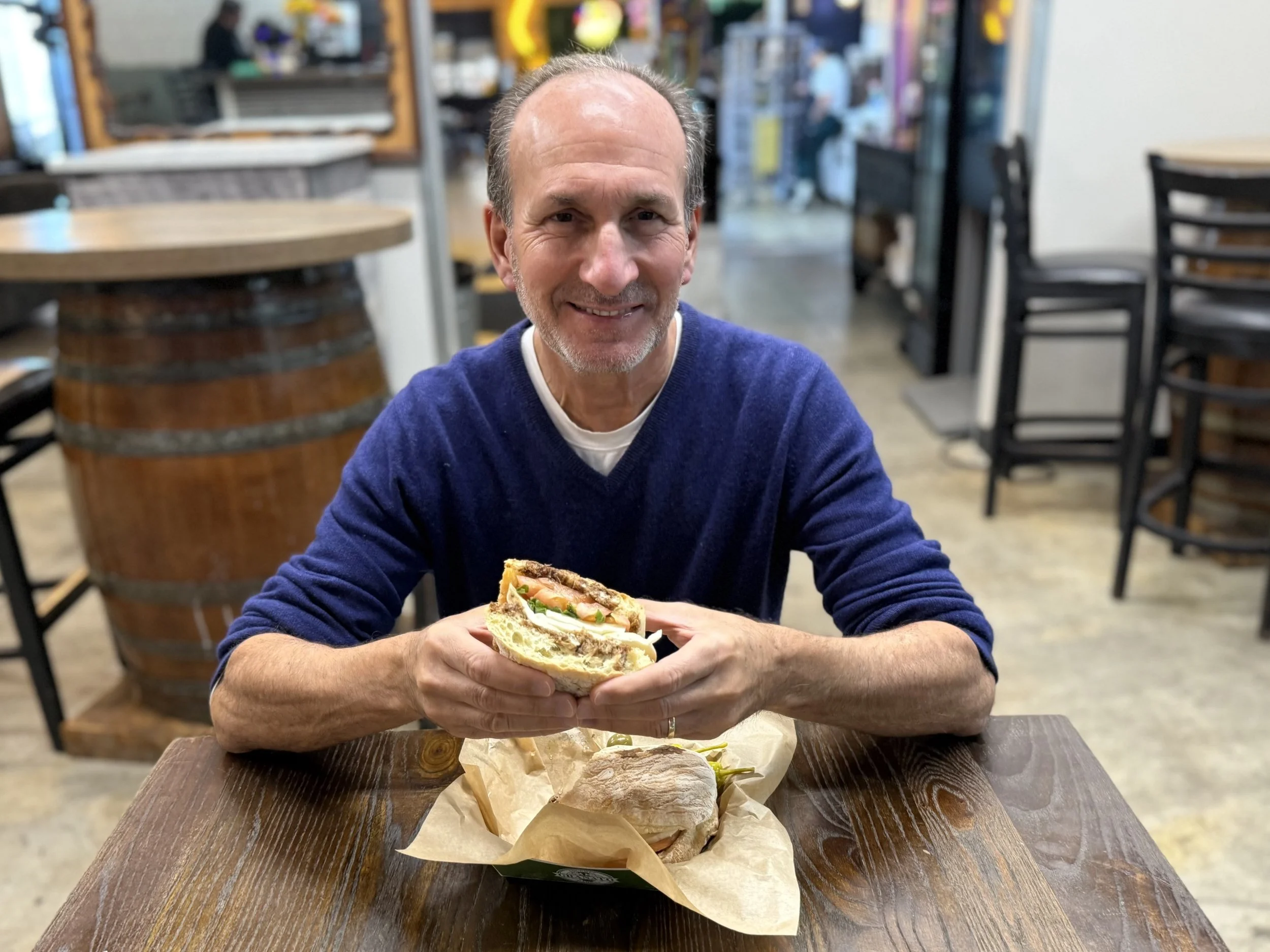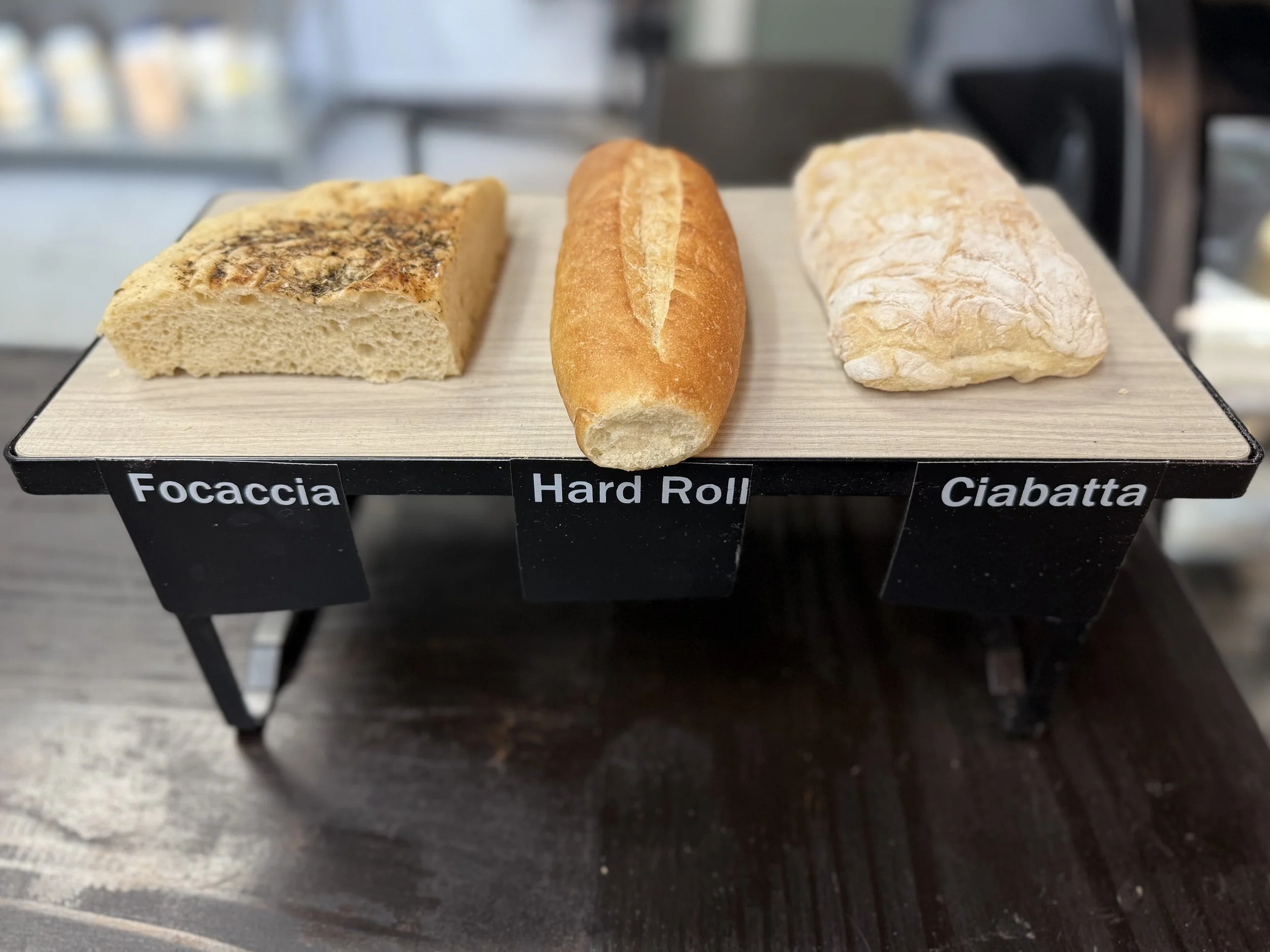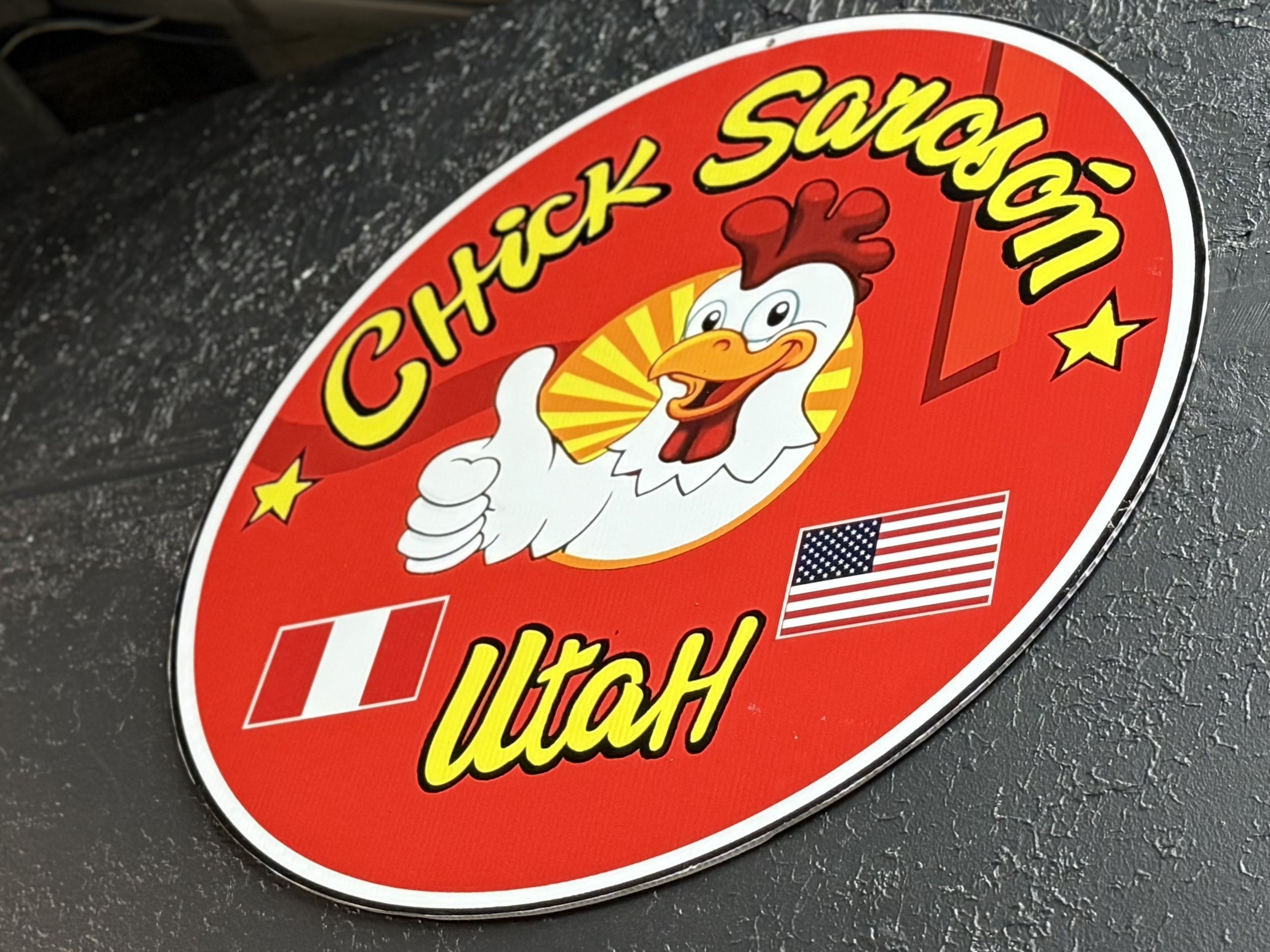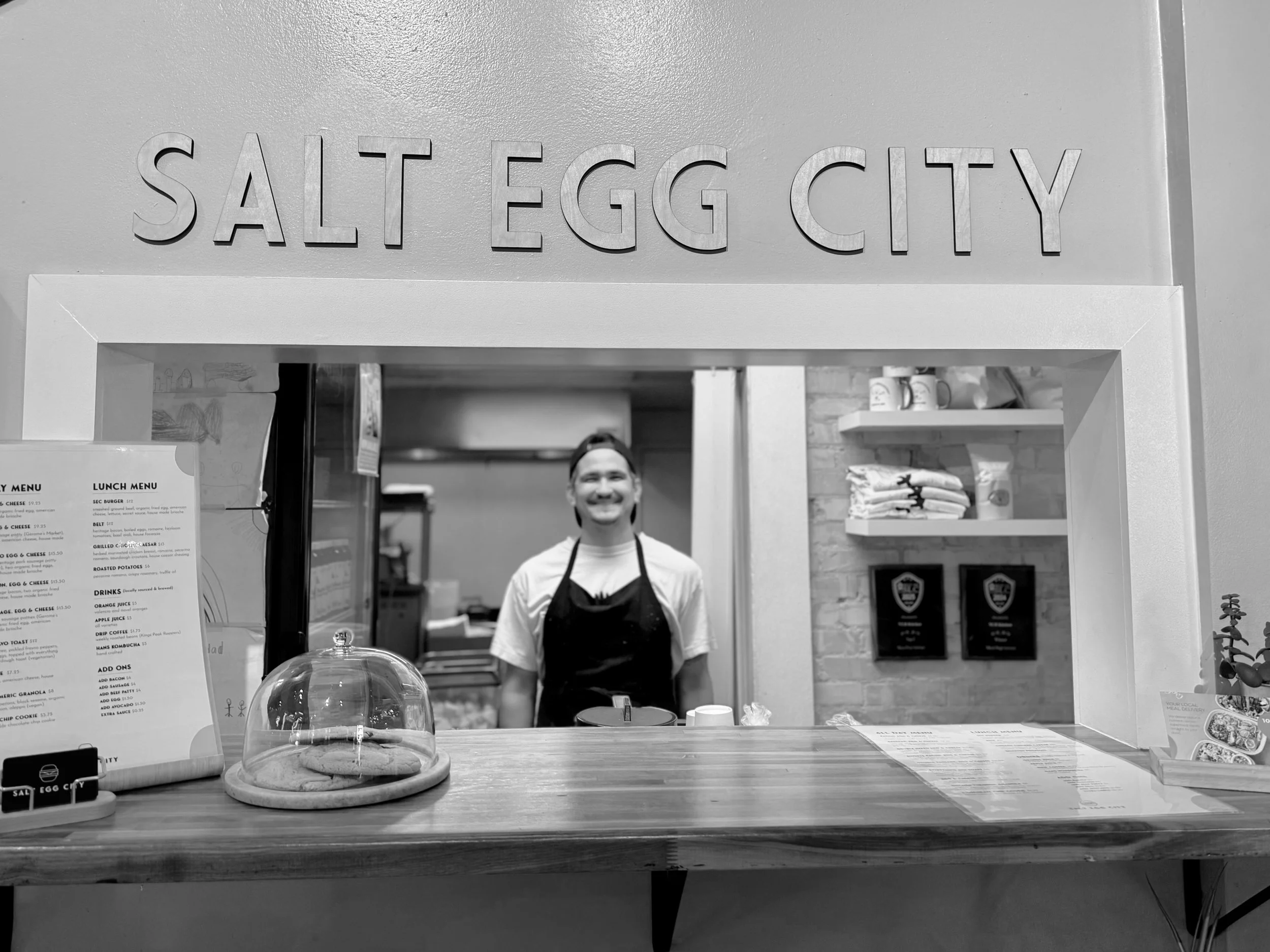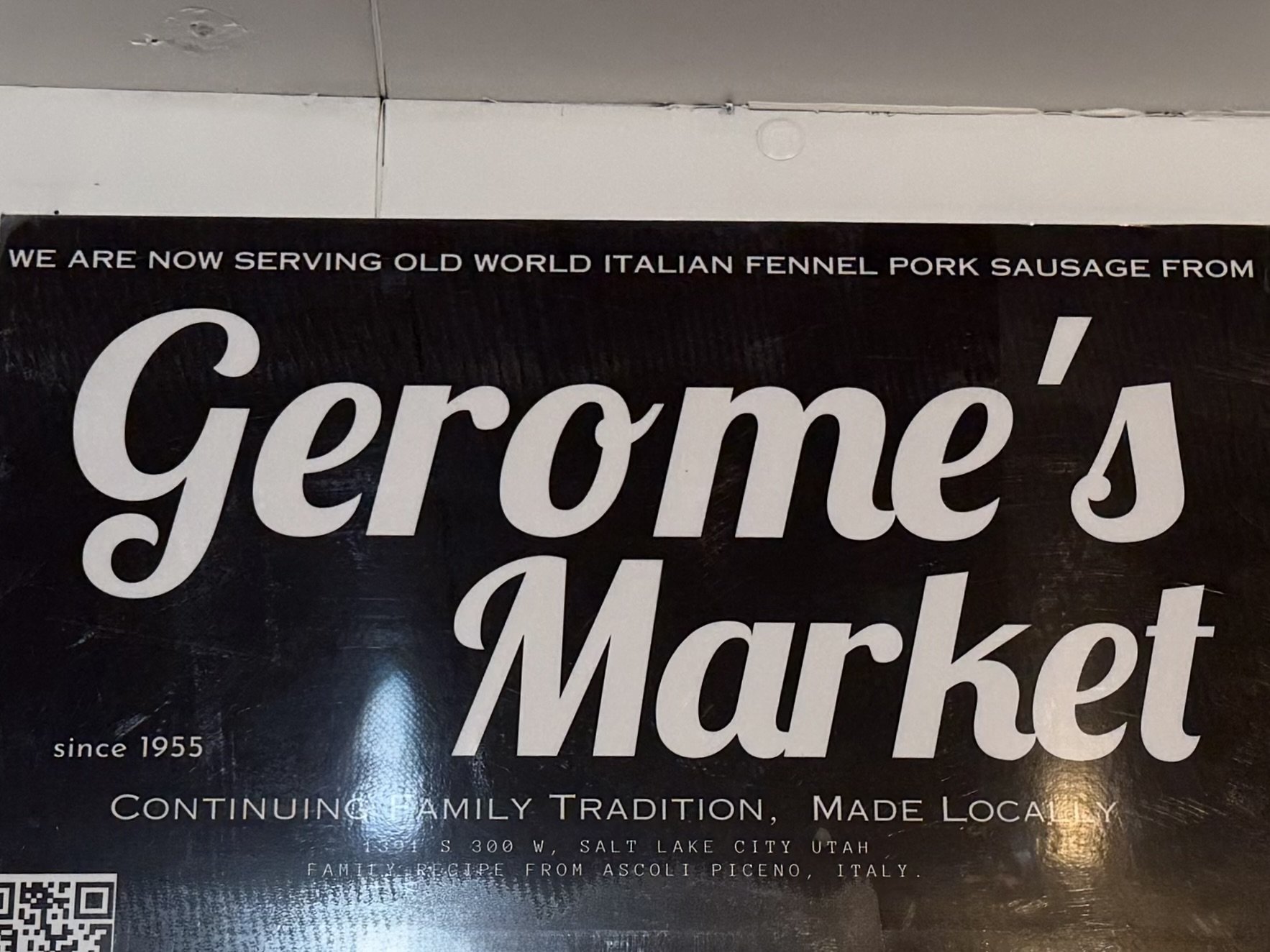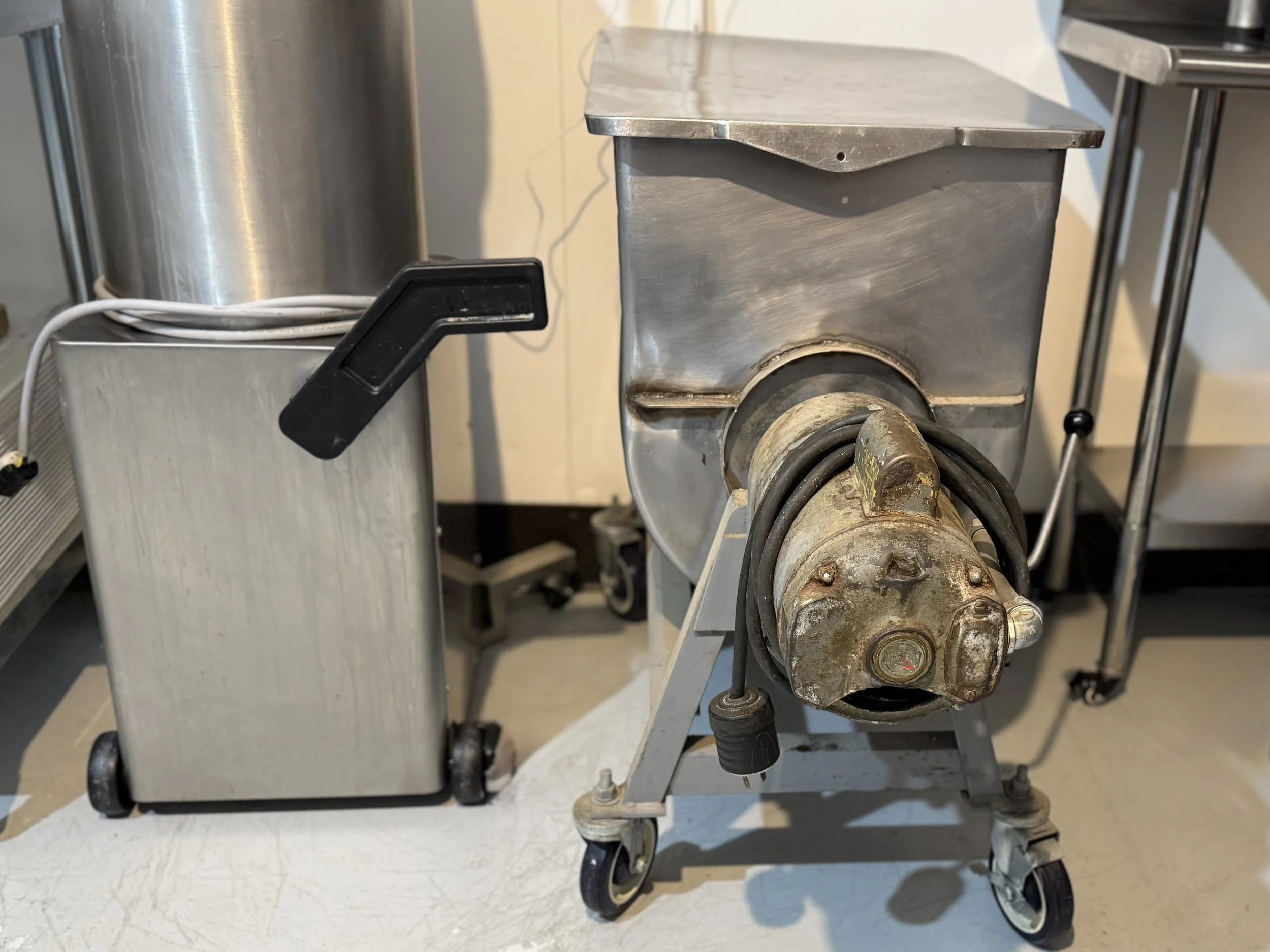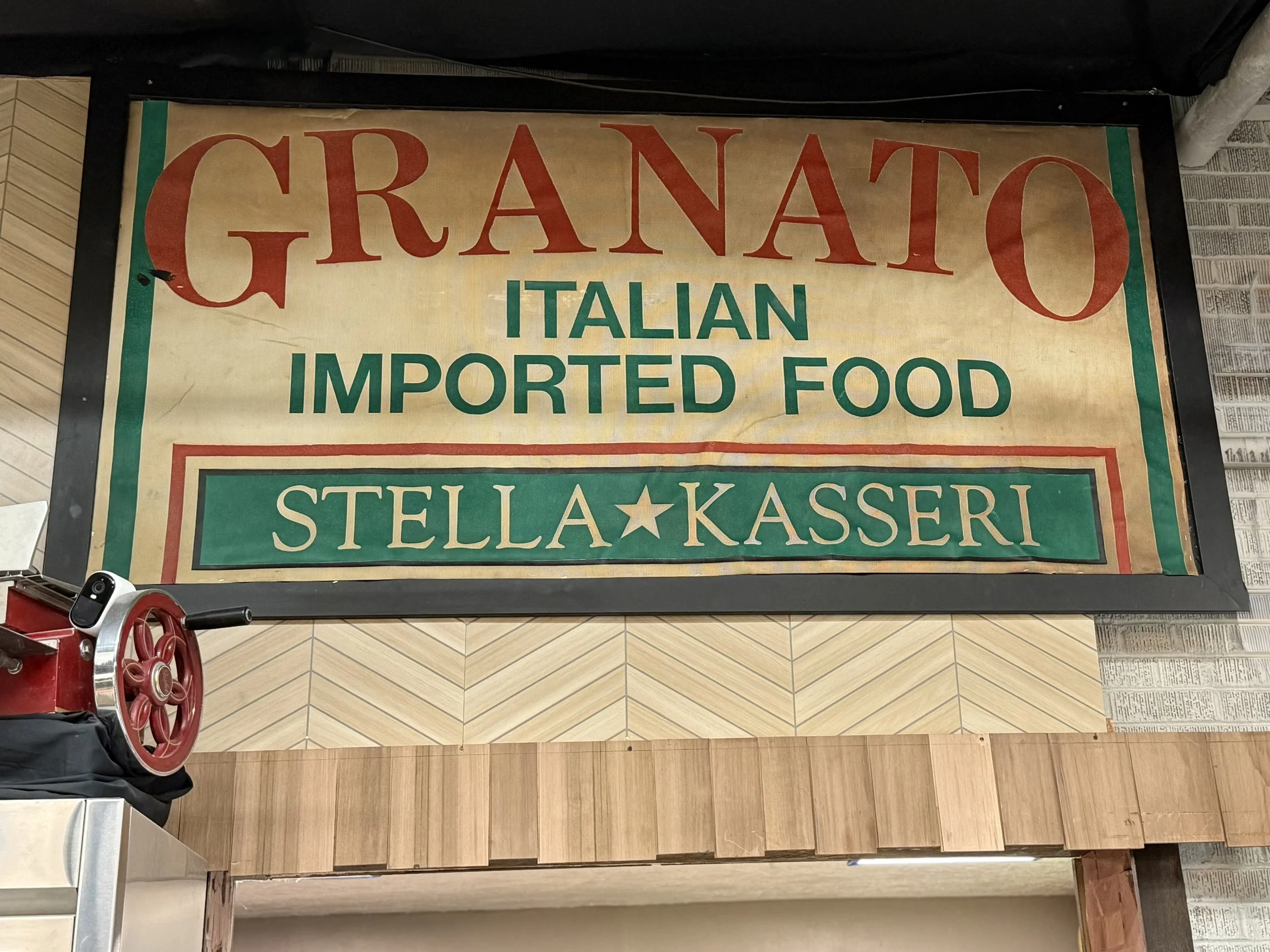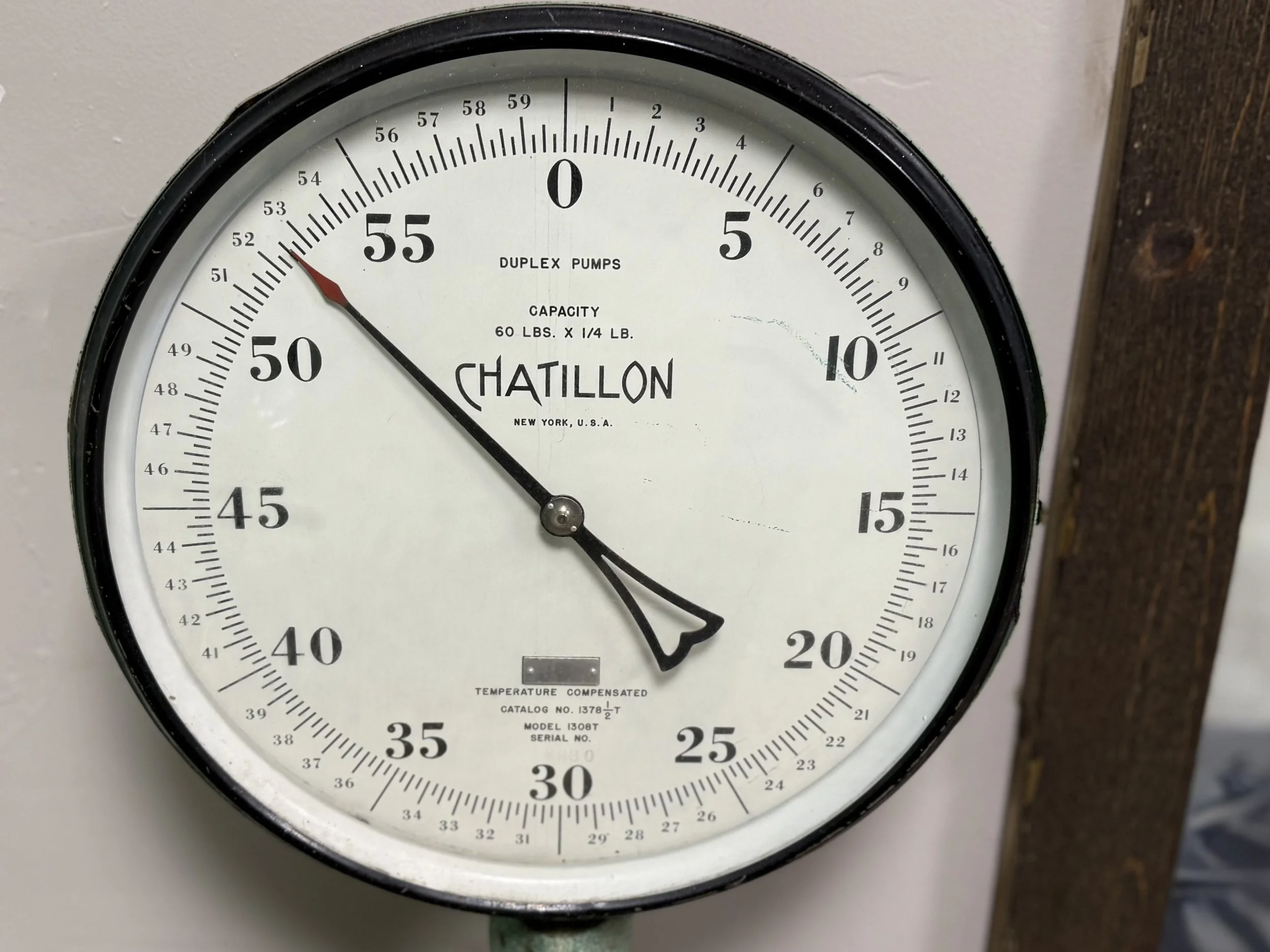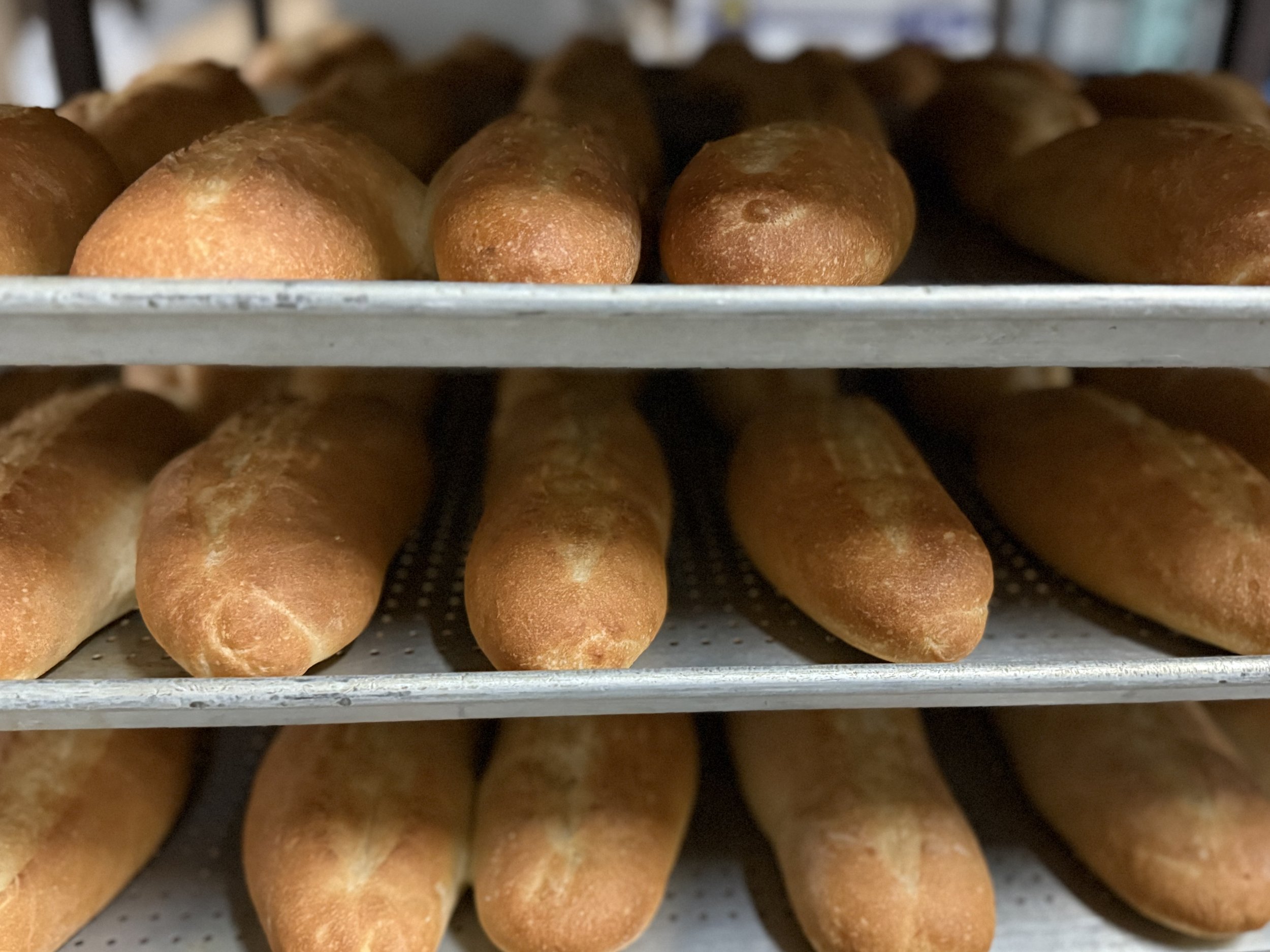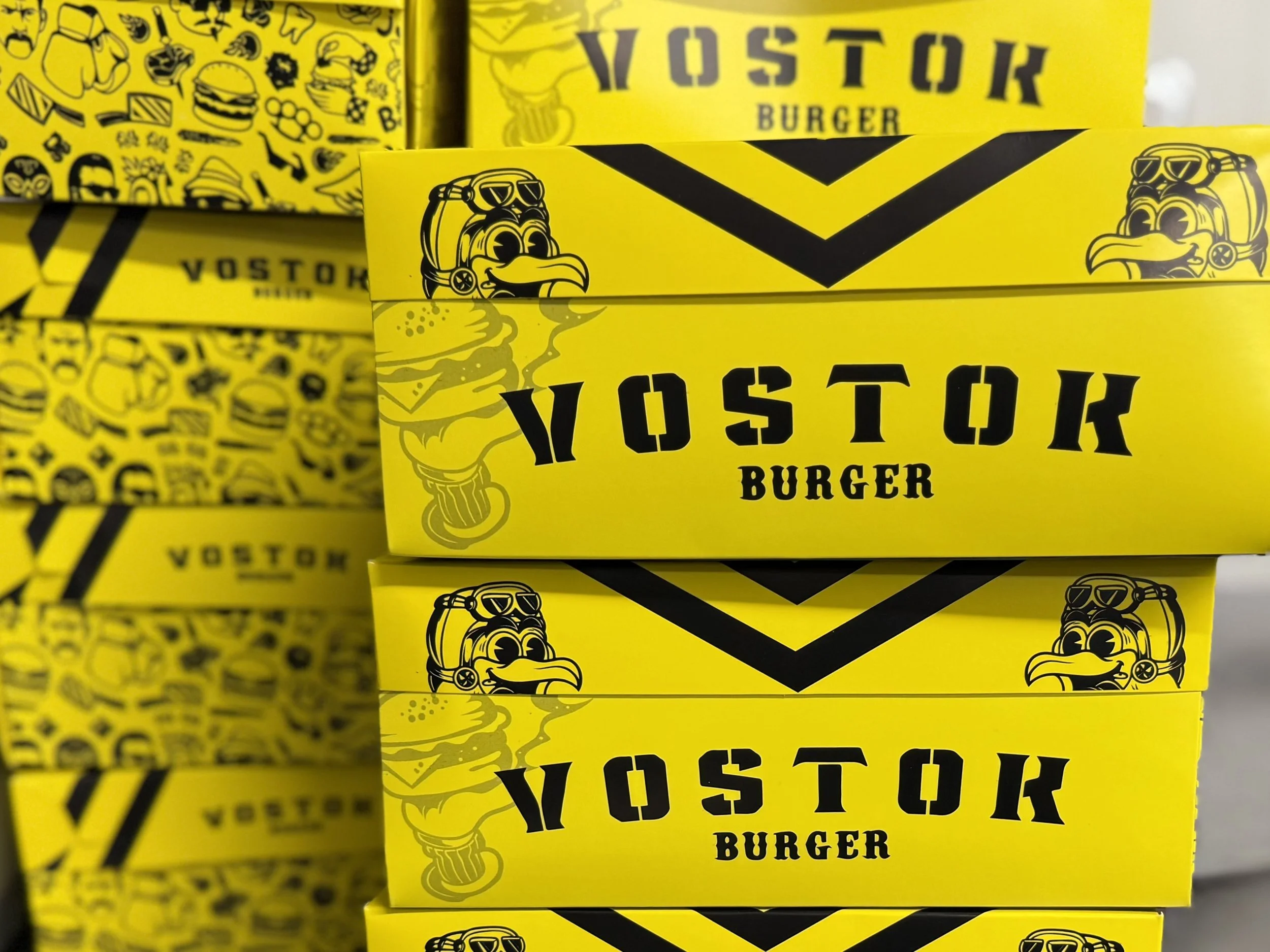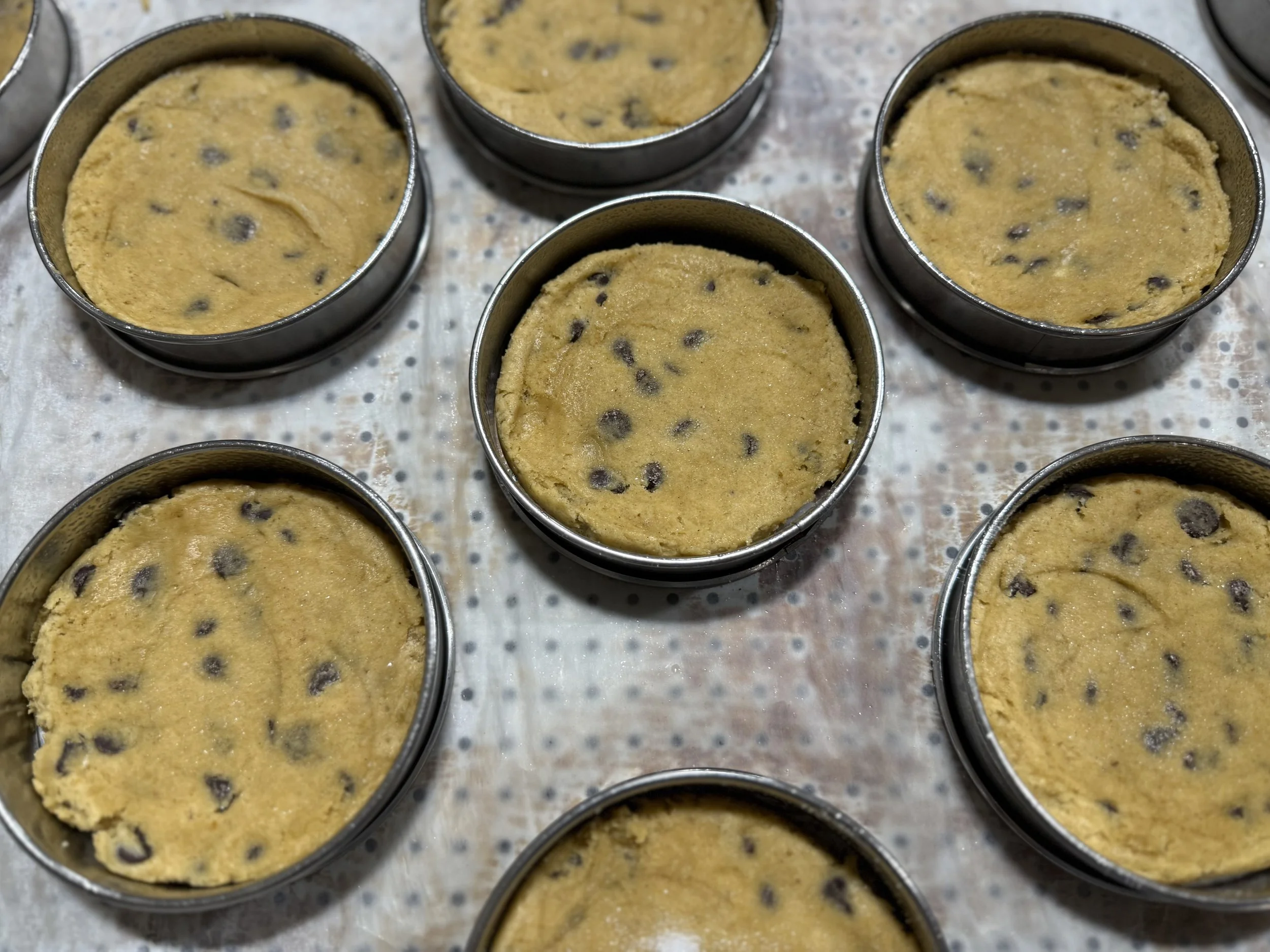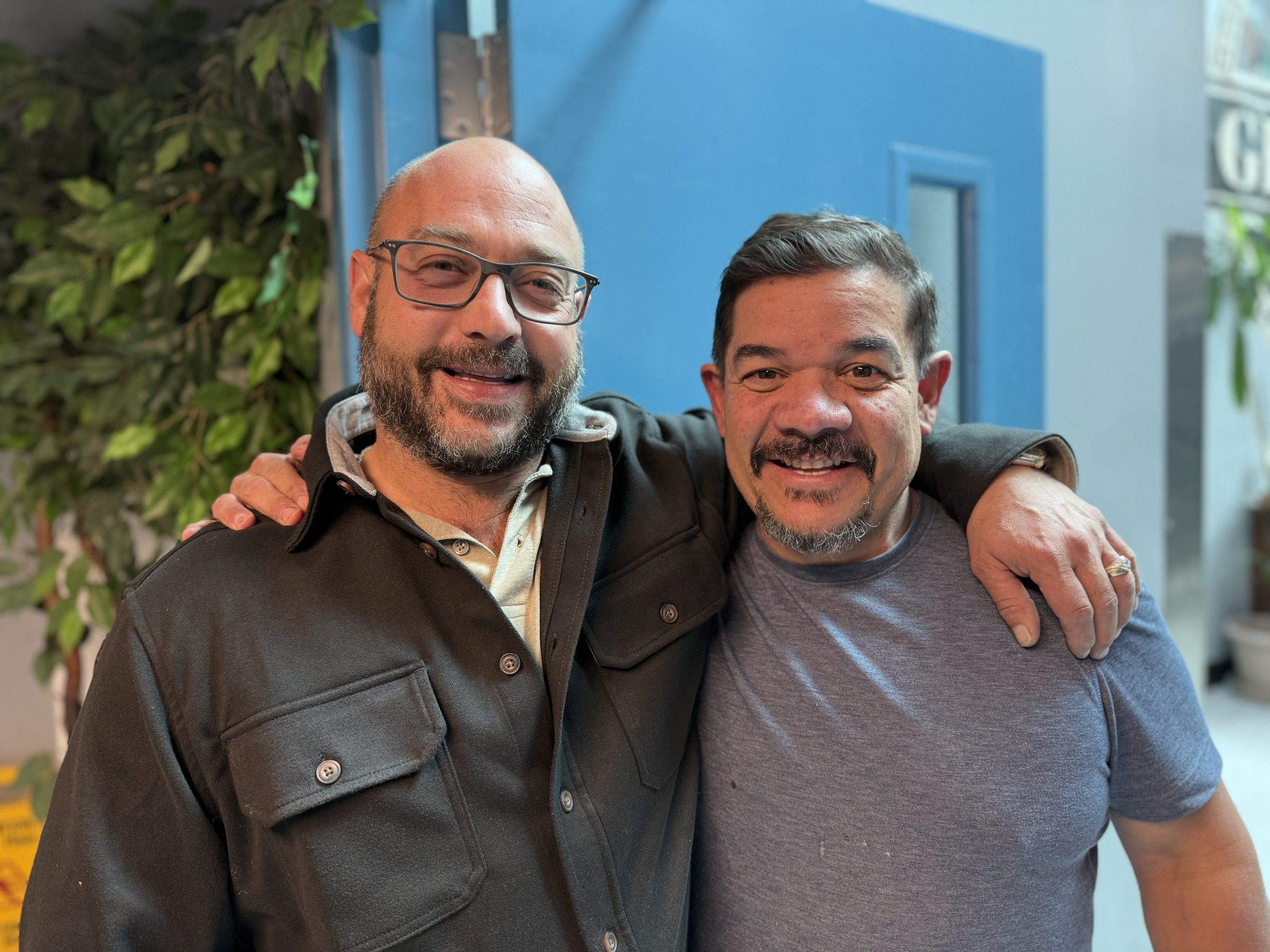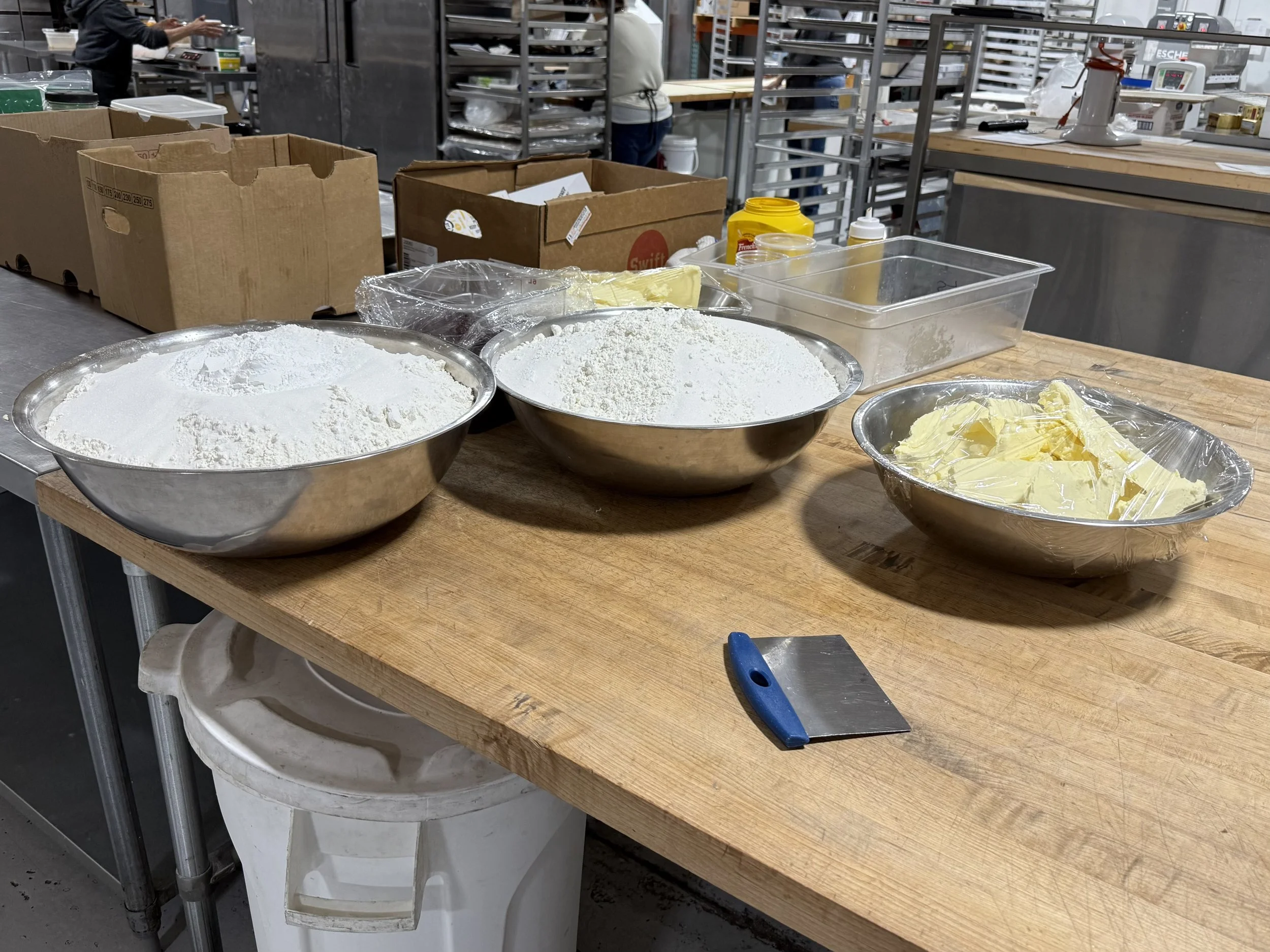Granato’s Market & Deli
"You can count on change.” This is a line that Frank Granato's father, Sam, repeated often as Frank was growing up. And to this day, he has lived it. He began learning the ropes as a child and was instrumental in steering a seventy-eight-year-old family name through warehouses, delis, airports, and food halls. He grasped the importance of the Granato legacy and has been determined to keep the business moving forward - from generation to generation.
Frank grew up inside Granato’s operations. There was never a question about where he wanted to be. As a boy, he cleaned floors and learned the ropes. At twelve, he was grating cheese and organizing shelves. And by fifteen, he was delivering orders, meeting chefs and owners all over the valley. The work made him who he is: steady, generous, and unfailingly kind. It shows in the way he guides his son, Thomas, on the deli floor, how he greets tenants by name throughout the warehouse, and in the easy respect that passes back and forth with the people who share this building. The business taught him the details, but the family taught him the heart.
That heart begins with his grandfather, Frank. He was the first child born in America after a courageous crossing through Ellis Island. The family found their way to Bountiful, Utah, where they kept goats on the land and a temple stands today. He made cheese, pressed wine on a hand-cranked press that the family still keeps, and built friendships across unlikely lines. He was close to Thomas S. Monson long before Monson became President of the Church of Jesus Christ of Latter-day Saints. And he was on a first-name basis with Pope John Paul II during frequent trips to Italy. These were the ties that bridged communities and opened doors for jobs and trade. In 1948, seeing the hunger for ingredients from home, he began selling Italian staples door to door in the mining towns. There were olives and oils, beans, and cheeses. It did not take long before he opened a tiny retail-and-warehouse space at 8th South and 2nd West. The front door welcomed walk-ins while the back housed wholesale.
Grandfather Frank’s son, Sam, expanded the vision. In 1993, he “punched through the wall” and added sandwiches, turning a counter of cold cuts into a place to sit, taste, and talk. The deli became a neighborhood table, “shaking hands, kissing babies, the Italian way,” while the distribution arm grew to serve hundreds of restaurants from Ogden to Provo. New delis followed in Holladay and West Valley. In the 1990s, Granato’s also ventured into airports, first by partnering with major operators, which was an essential step to get airside, and later by helping bring both national brands and local names to multiple Western airports. Granato’s at the Salt Lake City terminal reflects a principle Frank believes in, "street pricing that respects travelers."
The pivots were not random. They were a pattern. In 2006, the family sold several acres around the 8th South building to fund growth and opened a second distribution hub on Redwood Road with a deli up front. When national consolidation began reshaping food distribution, Granato’s made another hard, clear choice. In 2020, they sold the warehouse and distribution business rather than be swallowed by bigger competitors. The proceeds fueled a deep investment in real estate and a reimagining of their home base - keep the deli soul, expand the food-hall model, and fill the building with makers.
Walk in today to Granato’s Market & Deli and the front is seven thousand square feet of bustle with eight independent kitchens ranging from Venezuelan arepas and French pastries to Italian classics, American favorites, Peruvian plates, and breakfast by Salt Egg City. Many guests come for one place and return to try another, exactly as intended. Hidden behind them, nine production tenants keep the region fed. Fresh seafood is flown in daily. There is a salsa and hot-sauce maker, a pasta producer, a butcher curing and crafting sausages, and Fillings & Emulsions baking scrumptious breads, cakes, and French pastries.
Granato’s own lines also bake the breads - ciabatta, hoagies, focaccia - that they use for their hefty and delicious sandwiches, stromboli and calzones. With Thomas at the helm, the kitchen prepares olive spreads and lasagnas, and assembles millions of grab-and-go items each year for gas stations, hotels, kiosks, and the airports across Utah and neighboring states. The structure is simple and fair. The family owns the building, and tenants run their own operations. Rent and a percentage of sales align everyone’s success.
Family, again, is everywhere. Frank and his wife, Kamille, raised six children. Kamille keeps the books. “I am great at creating the problem,” Frank jokes, “and she dots the i’s and crosses the t’s.” Their son Jake runs warehouse operations, while another brother, Anthony pursues design. Thomas, at nineteen, is gentle with customers and serious about craft. He has already launched a gelato line for restaurants and developed sauces to pair with the pasta made on site. He says little, but he says enough, “This is home.”
Loss shapes the story, too. Sam died of cancer at sixty-seven. “My father was my business partner and friend.” For Frank, the only way forward was to keep building in a way that honored what Sam taught - diversify, protect the little guys, and make room for people to thrive. That is why Granato’s spread risk across airports, convenience, manufacturing, food halls, and real estate. The concept has always been that a shock to one part would not break the whole. It is why the deli remains a table first and a counter second.
For readers who may meet Granato’s for the first time years from now, the through-line is simple to follow. They began with a farm, cheese, and a hand press, followed by a tiny warehouse with a public counter. Then they grew distribution and hospitality side by side and turned a counter into a table with sandwiches and conversation. Granato’s took their know-how to airports and kept prices grounded. They chose to sell distribution rather than be consumed by it, while rebuilding the home base as a food hall and maker hub. And now, in 2025, responsibility is gently and brilliantly being handed over to the next generation.
Something that has clearly remained the same is the way people are treated. Frank answers quickly when asked what has never been fully conveyed about Granato’s: “Our passion has always been to help others.” Customers become friends, friends become family, dinners stretch into stories. The business keeps changing. The welcome does not. Words that every family member has lived by were given to them by Frank's grandmother decades ago. "It is nice to be important, but it is more important to be nice.”

